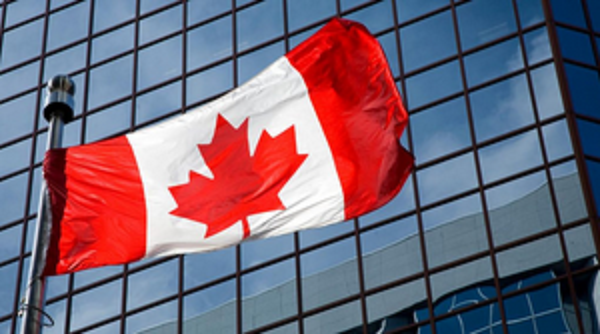‘It’s a relief’: Canadian companies shift focus to Europe for exports, growth
Andréanne Passarelli and her colleagues at Montreal-based Videns have been breathing a sigh of relief lately, thanks to a decision they made a few years ago not to expand into the United States and to head to Europe instead.
The consulting company has around 40 employees who specialize in using artificial intelligence to manage corporate data. It was founded in 2018 with initial plans to serve the Canadian and U.S. markets. But the international focus soon shifted to France where Videns won several contacts, including one with Airbus where it helps manage supplier workflows.
“We were looking really closely to the U.S.,” said Ms. Passarelli, Videns’s director of growth and business development. “Even though our priority was with France at the time, we were still studying the U.S. market,”
The business kept its focus on France and Europe, which now looks prescient as U.S. President Donald Trump heaps scorn, tariffs and havoc on Canada and other trading partners.
“It’s a relief,” said Ms. Passarelli who is based in Italy where she drums up European customers. “I would say this confirmed that it probably won’t be the U.S. as our second market we go to. We really want to expand in Europe and the European Union.”
For decades, most Canadian businesses rarely looked beyond the United States for export opportunities and expansion plans. The move southward made sense given the size and proximity of the U.S., and the long history of free trade between both countries.
In a matter of months, Mr. Trump has upended those deeply entrenched ties and alienated Canadians by mocking former prime minister Justin Trudeau and calling for the annexation of Canada. As companies assess the fallout of Mr. Trump’s actions, many have begun looking elsewhere for new customers, especially to Europe.
“I used to get a call maybe once a month from a relationship manager who covers Canadian companies who would reach out to my team and say: ‘Can you help these guys enter the U.K. market or the European market?‘,” said Bruce Dunlop, a regional vice-president at Export Develop Canada, who is based in London. “And now it’s more like one a day. People are saying, ‘Can you help me in some way or another? Because I need to diversify my markets’.”
Mr. Dunlop said the calls are coming from a wide variety of companies; mostly small and mid-sized businesses who no longer view the U.S. as a reliable market. “They’re suddenly thinking about it, whereas they probably weren’t six months ago,” he said.
There’s also been renewed interest in the trade deal between Canada and the European Union, known as the Comprehensive Economic and Trade Agreement, which was signed in 2016. A similar pact that governs trade between Canada and Britain came into force in 2021.
Until now, neither agreement generated huge enthusiasm among Canadian businesses, who remained transfixed on the U.S.. But both agreements – which emphasize free trade and harmonized regulations –have suddenly become a welcome offset to Mr. Trump’s haphazard protectionism.
The European deals eliminate virtually all tariffs on goods and services, and include measures designed to break down non-tariff regulations. “Ninety-nine per cent of exports between Canada and the U.K. and EU are tariff-free,” Mr. Dunlop said.
There are early signs of shifting trade patterns. Trade numbers for March showed a drop in Canadian trade with the U.S., while Canadian exports to other countries, including the Netherlands, Germany and Britain, climbed sharply.
Canadian companies have also been receiving newfound support and encouragement from European leaders who are also facing a looming trade war with Mr. Trump.
Two major European trade shows – the recently completed Hannover Messe industrial fair in Germany and the upcoming VivaTech show in Paris – have put Canada at the forefront.
“We are with you,” German Chancellor Olaf Scholz said to the Canadian contingent at the opening of the Hannover show, one of the world’s largest trade fairs. “Canada is not someone else’s federal state. Canada is a proud, independent nation.”
Around 250 Canadian companies set up booths in Hannover, a record number, and representatives from hundreds more came as delegates looking for deals. And representatives from more than 500 Canadian companies will be attending VivaTech in June, the largest foreign delegation at the event.
“Ever since the U.S. tariffs became pretty much a reality, we had 80 companies register to come over to Hannover,” said Jason Myers the chief executive of Next Generation Manufacturing, a Hamilton-based organization that led the Canadian contingent to Germany.
Mr. Myers said one of the main draws for Canadian businesses were the recent announcements by Germany, Britain and other European countries that they would massively boost their defence spending. That has opened up opportunities for Canadian companies to partner with European defence suppliers or to bid for subcontracts.
The prominence of Canadian companies at VivaTech has also come at an opportune time. Each year the trade show designates one nation as “country of the year.” This year Canada and Canadian companies have been given the spotlight.
“We couldn’t have dreamed of better timing, with the importance of exporting to France and being noticed by French customers and European customers,” said Isabelle Turcotte, vice-president of ecosystem relations at Scale AI, a Montreal-based non-profit innovation cluster that provides funding and support for tech companies. “It’s not just the AI ecosystem, it’s all of our tech sector that is really considering going to Europe first.”
There are still businesses hoping to break into the U.S. market, despite the recent upheaval but on a much more cautious basis.
“So right now for the U.S. market, our plan is surgical. We’re really targeting specific markets,” said Amanda Arciero, co-founder of Montreal-based Airudi.
Airudi, which has 60 employees, develops software to manage human resources and some of the company’s largest clients are in the health care sector. Ms. Arciero is looking at expanding into California, Florida and Texas and she recently went on a trade mission to California. Mr. Trump’s tariff threats don’t affect Airudi’s product line but Ms. Arceiro knows that could change at any moment.
The six-year old company has also already expanded into France and Africa, which Ms. Arciero said ensures that Airudi isn’t reliant on one market. “If you want to thrive as a company, you really need to have that international view from the get-go,” she said.
But for many businesses that rely on U.S. customers, moving into Europe presents huge challenges and limited opportunities, at least for now.
Chris Wyatt of Hamilton-based Kubes Steel Inc. manned a booth in Hannover for the first time this year. He was hoping to find European partners looking to boost their North American sales while also seeking out potential customers in Europe for Kubes‘s specialty products. But he has found it tough going on both fronts. “So that’s a little discouraging at the moment,” he said in an interview from Hannover.
Kubes makes custom products that involve bended and rolled steel, which are used in everything from roller-coasters to railways, medical equipment and mining. The company has done some work overseas and its products were used in the construction of the new U.S. embassy in London. Mr. Wyatt had some optimism that an increase in defence spending across Europe could lead to more contracts or partnerships.
But the U.S. remains the company’s biggest export market, accounting for up to 80 per cent of revenue some months. Many of the company’s Canadian customers also rely on U.S. sales for their finished products, which have been hit hard by tariffs.
Kubes has an office in Williamsville, N.Y., and Mr. Wyatt said the company is considering setting up a manufacturing site there to avoid the tariffs. But that’s a complicated and lengthy process.
As he listened to Mr. Trump’s various announcements on tariffs, Mr. Wyatt said he’s become even more confused. He’s still not sure which if any of the new levies apply to Kubes‘s products
“It’s been an interesting few weeks, and it’ll be even more interesting times as we see things unravel.”
This article was first reported by The Globe and Mail














